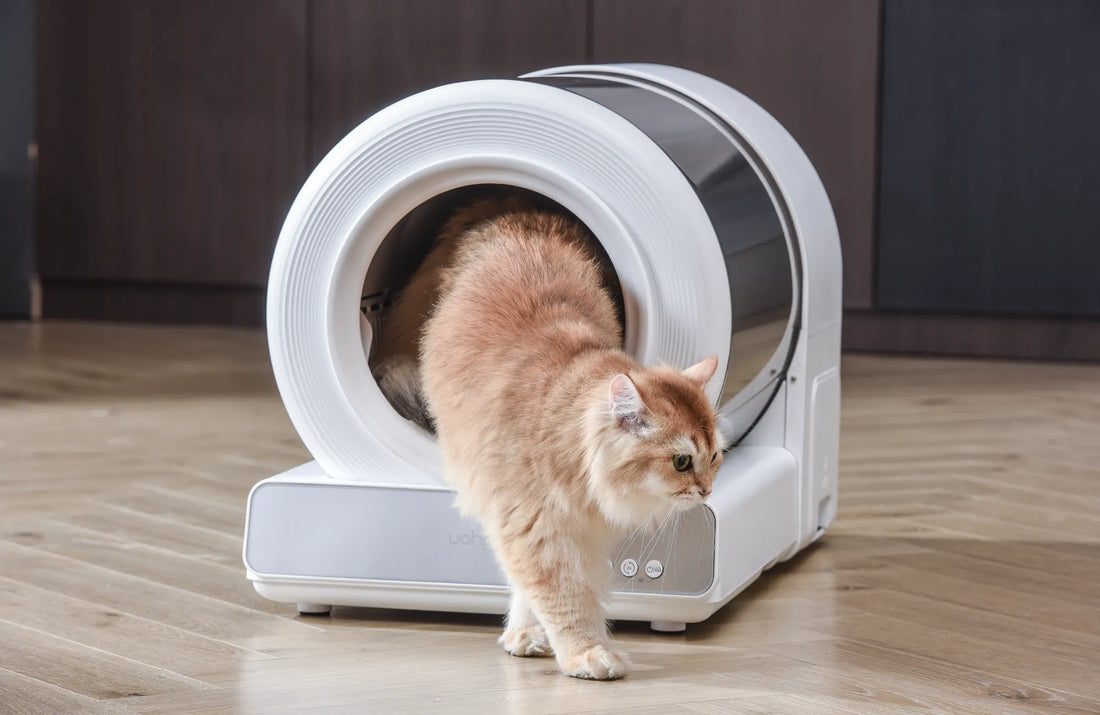If your cat keeps peeing outside the litter box, you're not alone. This frustrating behavior is one of the most common issues cat owners face. While it can be tempting to get angry or assume your cat is being spiteful, the truth is that there are often underlying reasons for this behavior. Understanding these causes is the first step toward finding a solution and restoring harmony in your home.
Why Is My Cat Peeing Outside the Litter Box?
Cats are creatures of habit, and when they deviate from their usual routines, it's often a sign that something is wrong. Here are some of the most common reasons why your cat might be avoiding the litter box:
1. Medical Issues
One of the first things to consider is whether your cat has a medical problem. Urinary tract infections, kidney disease, diabetes, and other health issues can cause discomfort or increased urgency to urinate, leading your cat to avoid the litter box. If your cat suddenly starts peeing outside the litter box, a visit to the veterinarian is essential to rule out any medical conditions.
2. Stress and Anxiety
Cats are sensitive animals, and changes in their environment can cause stress or anxiety. Moving to a new home, introducing a new pet or family member, or even rearranging furniture can disrupt your cat's sense of security. This stress may manifest as inappropriate urination.
3. Litter Box Preferences
Cats can be picky about their litter boxes. If the box is too small, too dirty, or filled with a type of litter your cat dislikes, they may choose to pee elsewhere. Some cats also prefer covered boxes, while others feel trapped in them. Experimenting with different types of litter and boxes can help you find what works best for your cat.
4. Territorial Marking
Unneutered or unspayed cats may mark their territory by urinating outside the litter box. This behavior is more common in multi-cat households, where cats may feel the need to establish dominance or boundaries.
5. Aging or Mobility Issues
Older cats or those with arthritis or other mobility issues may find it difficult to access the litter box, especially if it's located in a hard-to-reach area. Providing a box with lower sides or placing it in a more accessible location can help.
How to Stop Your Cat from Peeing Outside the Litter Box
Once you've identified the potential cause of your cat's behavior, you can take steps to address it. Here are some effective strategies:
1. Visit the Vet
If you suspect a medical issue, schedule a visit to the veterinarian as soon as possible. Early diagnosis and treatment can prevent the problem from worsening and help your cat feel more comfortable.
2. Reduce Stress
If stress is the culprit, try to identify and eliminate the source of your cat's anxiety. Provide a quiet, safe space for your cat to retreat to, and consider using calming products like pheromone diffusers or sprays. Gradual introductions to new pets or family members can also help reduce stress.
3. Optimize the Litter Box
Make sure your cat's litter box meets their preferences. Clean it regularly, experiment with different types of litter, and ensure the box is large enough for your cat to move around comfortably. If you have multiple cats, provide one litter box per cat, plus an extra one.
4. Address Territorial Behavior
If your cat is marking their territory, consider spaying or neutering them if they haven't already been. Providing separate resources like food bowls, water dishes, and litter boxes for each cat can also reduce competition and territorial disputes.
5. Make the Litter Box Accessible
For older cats or those with mobility issues, ensure the litter box is easy to access. Place it in a location your cat can reach without difficulty, and consider using a box with lower sides or a ramp.
Preventing Future Issues
Preventing your cat from peeing outside the litter box requires ongoing attention to their needs and environment. Here are some tips to keep in mind:
1. Maintain a Clean Litter Box
Regularly scoop and clean the litter box to keep it fresh and inviting for your cat. A dirty box is one of the most common reasons cats avoid using it.
2. Monitor Your Cat's Health
Keep an eye on your cat's overall health and behavior. Sudden changes in urination habits, appetite, or energy levels could indicate a medical issue that needs attention.
3. Provide Enrichment
Boredom or lack of stimulation can contribute to stress and inappropriate urination. Provide toys, scratching posts, and interactive playtime to keep your cat mentally and physically engaged.
4. Be Patient and Consistent
Changing your cat's behavior takes time and patience. Stay consistent with your approach, and avoid punishing your cat for accidents, as this can increase stress and worsen the problem.
If your cat keeps peeing outside the litter box, don't despair. With a little detective work and some adjustments to their environment, you can help your feline friend get back on track. Remember, your cat isn't trying to be difficult—they're simply communicating that something isn't right. By addressing the underlying cause and providing a supportive environment, you can strengthen your bond with your cat and create a happier, healthier home for both of you.

![[🎃Halloween Sale]UAHPET Stainless Steel Self-Cleaning Cat Litter Box](http://www.uahpet.com/cdn/shop/files/1-cat-litter-box.jpg?v=1759128420&width=1600)












